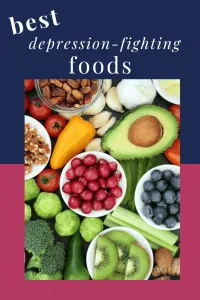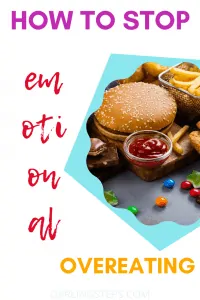What Depression Really Reveals
Depression as a Symptom – What Your Depression Is Trying to Reveal to You
Depression itself is a disorder with its own set of symptoms, but depression can also be a symptom in and of itself. There are various health and lifestyle issues of which depression is an indication or “side effect.” Here are some suggestions and ideas as to what your depression may be telling you.
Cancerous Tumors
A recent study using laboratory rats indicated that tumors can have psychological effects as well as physiological ones – and that’s not just depression over the knowledge or diagnosis of the cancerous tumor. According to the study, the tumor itself may generate chemicals that induce depression. These chemicals then make their way to the brain where they affect those areas responsible for emotions.
Also, tumors may inhibit the production of corticosterone, which is a stress hormone that decreases the effects of other depression-causing substances.
This study indicates that cancerous tumors can physically trigger depression; thus, depression may be a symptom of the presence of cancer.
Thyroid Problems
Hypothyroidism, or an under-active thyroid, may cause depression, sources say. Depression and hypothyroidism also share a number of symptoms, such as:
- Fatigue
- Weight gain
- Weakness
- Menstrual irregularities
Depression is included in the list of symptoms for hypothyroidism. If the main thing you seem to be struggling with is depression, your doctor may prescribe antidepressants and not consider your thyroid. If depression is accompanied by any of the following symptoms, you may want to talk to your doctor about having your thyroid function tested.
- Dry, flaky skin
- Hoarseness and/or difficulty speaking
- Discomfort on swallowing (the thyroid is located on the front of the throat)
- Thinning hair
- Inability to tolerate cold, or feeling cold all the time
- Joint pain
Stress
Too much stress may lead to depression, sources warn. And because “stress” is such a generalized term, and seems to be common to everyone, many people who feel depressed may not think to look to their lifestyle as the possible culprit. In other words, stress has become the new norm.
Some signs that your depression may be due to stress include:
- Nightmares and/or sleep disturbances
- Inability to sleep
- Irritability
- Isolation and withdrawal
- A sense of regret or guilt
- Feeling overwhelmed
Pregnancy
Even before you know you’re pregnant, depression can present itself as the hormonal changes begin to take place in your body. Depression may not be the first sign, but it could be one of the early signs that you are pregnant. This is especially important to note for women who may seek treatment for depression without considering the possibility of pregnancy; antidepressants have been implicated in birth defects and other problems in pregnancy.
If there’s any possibility that you may be pregnant, make sure you tell your doctor when you go in for treatment or help with your depression.
Depression Explained
Do you know someone who has depression? Have you or someone in your family been diagnosed with depression? Even if we are dealing with depression in ourselves or our families, we may not know what it really is. Is it just feeling sad all the time? Why can’t people just snap out of it?
Depression is said to be the most widespread mental disorder. It affects women far more than men and is particularly prevalent in teens.
What Causes Depression?
There are various opinions on what causes depression, and even the role of brain chemicals is debated. Generally, though, depression can be separated into two categories: circumstantial and clinical.
Circumstantial depression refers to feelings surrounding an event, such as a death in the family or having to sell one’s house and move. The circumstances that can cause depression are extremely numerous, from kids having trouble with friends at school to the elderly in a nursing home. Circumstantial depression is also highly individualized.
Clinical depression defies circumstances and the depressed person may feel more depressed because he or she can’t find a reason for such dreadful feelings. Clinical depression may baffle those around the patient, too, because they can’t understand how a person could be depressed when his or her life seems to be going fine. This lack of understanding may make the patient’s depression worse.
Treatment approaches differ according to the type of depression the patient is experiencing as well as the individual’s personality and lifestyle.
Myths
There are a lot of myths surrounding depression that, when explained, help people better understand the illness. For example:
- Isn’t depression just self-pity? – Depressed people may seem to be “wallowing” in their sadness, but it’s not willful self-pity. It’s a true medical illness, sources point out, that should be treated as such.
- Medication for depression is overkill, and just treats the symptoms – For those on the outside, so to speak, medication can seem like putting a Band-Aid on a massive wound. But often, medication is what the patient needs to feel good enough to seek help for the underlying problem.
- Depression is not a “real” illness
Actually, it is; brain imaging studies have revealed how the actual chemical imbalances occur in the brain of a depressed person. It is considered physiological, even if the cause is circumstantial – the chemical imbalance may still be present regardless of the depression’s origin.
Other Factors
Depression can be affected not only by circumstances; genetics, personality, psychology, and biology may also play a role. Women are far more likely to be diagnosed with depression, indicating possible hormonal factors. Men, on the other hand, are more likely to succeed in suicide as a result of depression than women, although more women than men attempt suicide, sources report.



